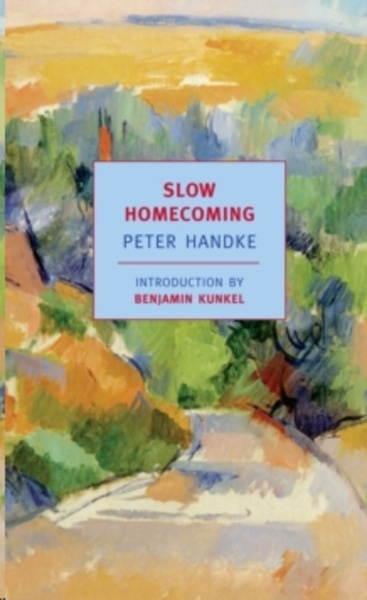Slow Homecoming

Editorial Random House USA
Fecha de edición marzo 2009 · Edición nº 1
Idioma inglés
EAN 9781590173077
296 páginas
Libro
encuadernado en tapa blanda
Resumen del libro
Provocative, romantic, and restlessly exploratory, Peter Handke is one of the great writers of our time. Slow Homecoming, originally published in the late 1970s, is central to his achievement and to the powerful influence he has exercised on other writers, chief among them W.G. Sebald.
A novel of self-questioning and self-discovery, Slow Homecoming is a singular odyssey, an escape from the distractions of the modern world and the unhappy consciousness, a voyage that is fraught and fearful but ultimately restorative, ending on an unexpected note of joy.
The book begins in America. Writing with the jarring intensity of his early work, Handke introduces Valentin Sorger, a troubled geologist who has gone to Alaska to lose himself in his work, but now feels drawn back home: on his way to Europe he moves in ominous disorientation through the great cities of America.
The second part of the book, The Lesson of Mont Sainte-Victoire, identifies Sorger as a projection of the author, who now writes directly about his own struggle to reconstitute himself and his art by undertaking a pilgrimage to the great mountain that Czanne painted again and again. Finally, Child Story is a beautifully observed, deeply moving account of a new fathernot so much Sorger or the author as a kind of Everymanand his love for his growing daughter.
Biografía del autor
El escritor austriaco Peter Handke (1942) es ya un clásico contemporáneo de la literatura en lengua alemana. Con un estilo literario en el que prima la calidad y la autenticidad, por encima de cualquier otra consideración, su medio centenar de novelas, ensayos y obras de teatro tienen en común la angustia de la soledad, la incomunicación y, en no menor medida, la búsqueda de momentos trascendentes en el seno de la realidad cotidiana, eso que llama umbrales . Además del Premio Nobel de Literatura 2019, Handke recibió el Premio Georg Büchner (1973), equivalente al Cervantes de las letras alemanas, el Premio Kafka (1976) y el Premio Heine (2006), que rechazó. La mayor parte de su obra ha sido publicada a lo largo de los años en Alianza Editorial.








